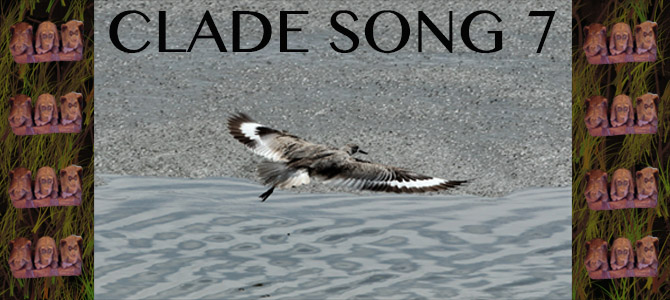|
read by Akim Golubev
Леопард
Если убитому леопарду не опа-
Лить немедленно усов, дух его
будетпреследовать охотника.
Абиссинское поверье.
Колдовством и ворожбою
В тишине глухих ночей
Леопард, убитый мною,
Занят в комнате моей.
Люди входят и уходят,
Позже всех уходит та,
Для которой в жилах бродит
Золотая темнота.
Поздно. Мыши засвистели,
Глухо крякнул домовой,
И мурлычет у постели
Леопард, убитый мной.
— По ущельям Добробрана
Сизый плавает туман,
Солнце, красное, как рана,
Озарило Добробран.
— Запах меда и вервены
Ветер гонит на восток,
И ревут, ревут гиены,
Зарывая нос в песок.
— Брат мой, брат мой, ревы слышишь,
Запах чуешь, видишь дым?
Для чего ж тогда ты дышишь
Этим воздухом сырым?
— Нет, ты должен, мой убийца,
Умереть в стране моей,
Чтоб я снова мог родиться
В леопардовой семье. —
Неужели до рассвета
Мне ловить лукавый зов?
Ах, не слушал я совета,
Не спалил ему усов! |
read by Akim Golubev
Leopard
If you do not immediately singe
the whiskers of a slain leopard,
its spirit will pursue the hunter.
A popular Abyssinian belief
The leopard I slew is doing
Sorcery and telling fortunes
In the lonely silent night
Of my rented room.
People come in and go out,
The last to leave is she
For whom the golden darkness
Wanders in my veins.
It’s late. The mice have squeaked,
The lonely house has groaned,
And purring on the bed
Is the leopard that I slew.
— A gray fog floats over
The Dobrobran gorge,
The sun, red like a wound,
Strikes the Dobrobran with light.
— The wind drives the aromas
Of honey and verbena east
While the hyenas howl and howl
Burying their noses in sand.
— My brother, my brother, can you
Hear the howl, sense the smell,
See the fog? Why do you still
Breathe the humid air?
— No my murderer,
You must not die in my land
So I can be born again
Into the family of leopards. —
Really now, till dawn comes
Must I hear his sly summons?
Ah, I did not heed the advice,
I did not singe his whiskers. |



